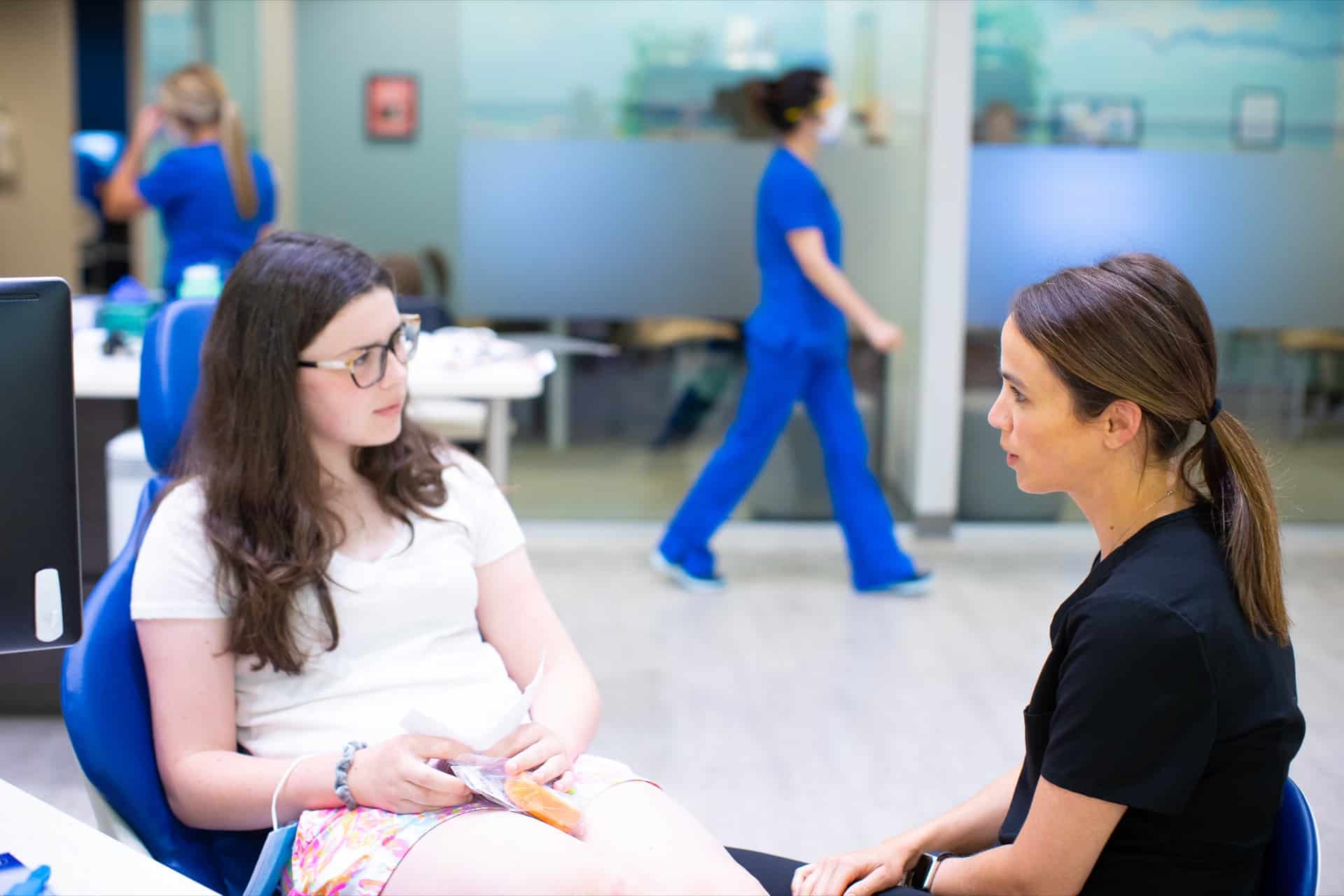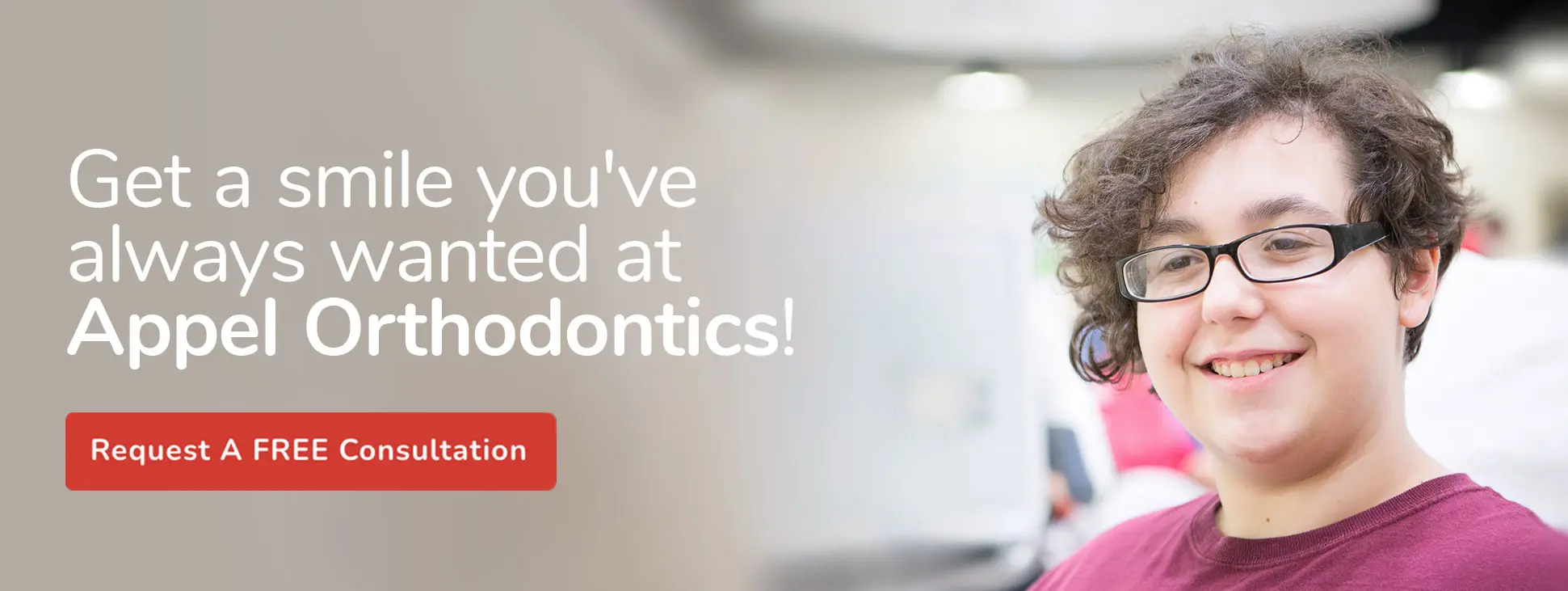Braces are more about fixing crooked teeth. They’re often used to fix a bad bite, called a malocclusion. Braces occasionally need a little help fixing that bad bite. That’s where bite blocks, sometimes called bite turbos, come in!
Appel Orthodontics uses bite blocks on braces to keep braces safe and to make your braces treatment faster and easier. Bite turbos are made to keep your teeth apart and keep you from damaging your braces. How do bite blocks work? Do bite turbos hurt? We’re happy to answer these questions and more!
What Are Bite Blocks?
What are bite turbos, also known as bite blocks? Bite turbos are little blocks, usually made of acrylic or metal, attached to the back of your teeth. Often, we place bite blocks on the front teeth.
Why do we use bite turbos for braces? It’s all part of our customized treatment for you. Some people have bad bites that could damage their braces if they bite down completely. Bite blocks keep you from biting all the way down. They allow a gap between your upper teeth and your lower teeth. That way, your teeth don’t bump brackets and knock them off.
Bite blocks are made just for you, so they fit your teeth exactly. The acrylic bite blocks can also come in custom colors. Most bite blocks are triangular or L-shaped.
In addition to front teeth bite blocks, we can also put bite blocks on molars. The back molars have bands around them that hold your braces archwire in place, so it’s vital they do not get damaged. The bite blocks keep your back teeth from damaging or loosening your archwire, which can affect your treatment time.
How Long Do Bite Turbos Stay On?
Many patients want to know, “How long do I wear bite blocks?” You won’t wear your bite blocks long. We’ll remove your bite turbos once your mouth is trained not to bite too low and your teeth have moved so they won’t damage your braces.
Why Do I Need Bite Blocks?
If you’re wondering, “Do I need bite turbos?” In short, it depends. Part of our goal at Appel Orthodontics isn’t just to straighten your teeth and improve your bite. Biting and chewing with misaligned teeth or jaws can lead to more pressure on your jaw or temporomandibular joint (TMJ) than it was designed to handle. Over time, this can cause headaches, neck aches, jaw pain, excessive tooth wear, and even digestive problems from improper chewing.
Those with misaligned bites and jaws can damage their braces because their teeth connect with the brackets and wires instead of with their proper positions on the teeth above or below them. Over time, your teeth could loosen or break off brackets or wires. That’s why fixing your bite before it becomes a problem is important.
The bite block protects your braces and works with them to correct your bite. Your jaw is trained to bite properly as your braces move your teeth where they should be. This relieves pressure on your teeth and jaws and prevents pain and excessive tooth wear.
How to Eat With Bite Turbos
If you’re wondering how to eat with bite blocks, the answer is simple — eat! You may find it challenging at first, and there are a few foods to avoid. But after a week or so, you should get used to your bite blocks and find eating much easier.
We recommend you eat soft foods the first few days after getting your bite blocks. Try not to eat foods that require a lot of chewing, like meats or mozzarella cheese. You’ll need to get used to chewing with your bite blocks first. Until then, you may not be able to chew your food properly, which is why we recommend avoiding chewy foods. We suggest sticking to soft foods because your teeth and gums may be sore after getting your bite blocks. It should improve after a few days, and you should return to normal after a week.
Speaking With Bite Blocks
Some people have slight speech issues with bite turbos, which usually only last a few days. Anytime you put something on your teeth or into your mouth, your mouth and tongue will need to get used to them. You may have a slight lisp or find certain sounds hard to make during that time. Your tongue has to learn how to position itself to make the sounds properly again, which it should do after a few days.
Contact Appel Orthodontics if you still have trouble after a couple of weeks. We can check that the blocks are positioned correctly, and we may recommend one of several options, including time with a speech therapist, if necessary.
Bite Blocks in Philadelphia, PA
Appel Orthodontics will use a variety of appliances and options to give you the smile of your dreams, including bite turbos. If you want to learn more about braces treatment and bite blocks, you can schedule an appointment with us for a free consultation. We’d love to discuss bite blocks, braces, and other treatment options with you!



